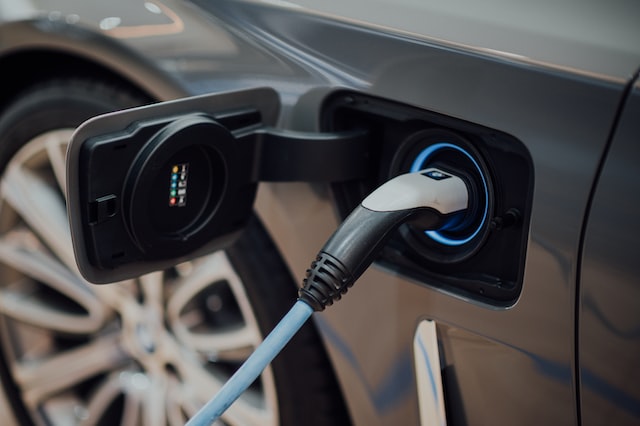
Research Scientist Secures a Patent for Mobile Charging Network
Featured in a 2022 Tech Talk, Mojtaba Akhavan-Tafti has secured a patent to develop an EV mobile charging network at U-M.

Featured in a 2022 Tech Talk, Mojtaba Akhavan-Tafti has secured a patent to develop an EV mobile charging network at U-M.
The U.S. Patent Office has granted the University of Michigan a patent to develop cutting edge technology to create a mobile charging network for electric vehicles (EVs). Mojtaba Akhavan-Tafti, Ph.D., has conceptualized a charging network of mobile power transmitters.
“Electric vehicle (EV) adoption has been hailed as one of the most impactful and economical ways to urgently reduce the harms of climate change,” said Akhavan-Tafti, an assistant research scientist at U-M Climate and Space. “The technology improvements, cost reductions, increasing model choices, maturing charging infrastructure, and economic recovery over the past decade have positively influenced and supported the increased sales of hybrid and electric vehicles.”
At its core, the new technology would allow a network of mobile electric chargers to deliver electricity to electric vehicle (EV) customers upon demand. The innovation aims to boost EV adoption by eliminating EV range anxiety through providing clean and fast chargers anytime and anywhere.
Human attitudes toward EVs, including factors such as range anxiety, have limited the growth of these technologies. A survey by TechCrunch showed that 28 percent of Americans still don’t want to consider buying an EV, while 14 percent would definitely buy one and 57 percent would consider one. The three main concerns holding customers back from EV purchases include range anxiety, access to charging, and price.
“However, mass adoption of EVs remains low, due in part to the small number of adequate charging stations—the number of public charging stations in the U.S. and Canada is seven times smaller than the number of gas stations,” said Akhavan-Tafti. “To address customer anxiety regarding charging of EVs, proprietary and third-party charging networks have been developed and deployed.”
According to his research, Akhavan-Tafti said efforts to increase the number of standard charging stations could threaten the performance and the load capacity of the power grid.
“This inspired me to design a network of mobile electric chargers, an ‘on-demand electric charging service,’ that aims to deliver electricity to EVs, such as cars, scooters, robots, etc., upon request. The technology aims to boost EV adoption by eliminating range anxiety through providing clean and fast chargers anytime and anywhere.”
Over the course of the summer and fall, his research team has been working to further develop and commercialize the technology. They have led Customer Discovery to develop a scalable business model that is informed by the needs and demands of the consumer market.
“The biggest challenge to offering mobile charging for EVs is a scalable and profitable business model which allows the service to become accessible widely at a reasonable cost to customers,” said Akhavan-Tafti. “Once a scalable business model is developed, the network implementation becomes an engineering task, which our team at the University of Michigan is highly capable of overcoming.”
Akhavan-Tafti is a space scientist, inventor, and clean tech entrepreneur. He is the founder of Adaptable Powerful Transformative (APT) Solar Solutions, whose mission is to unlock the power of the Sun by revolutionizing solar electricity generation and distribution.
At the U-M College of Engineering’s Department of Climate and Space, Akhavan-Tafti investigates the inner-workings of the Sun, Earth, and the medium. He also teaches satellite mission design and analysis. While his work at U-M involves studying the Sun, he is equally dedicated to harnessing the Sun’s power to adapt cleaner energy resources.
“Data suggests that 2 million EVs equates to 20,000 fewer deaths from climate change, which is significant,” said Akhavan-Tafti. “The clean energy revolution has already begun, and we all have to contribute and play our own critical role.”
Akhavan-Tafti was also featured in a 2022 Tech Talk at Ann Arbor SPARK in October.